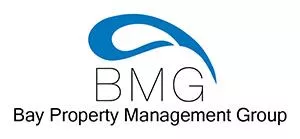How to Become a Property Manager
Becoming a property manager can be an excellent career path for individuals who are driven and love working with people. Additionally, the property management industry provides many financial and professional growth opportunities. So, if you want to learn what it takes to become a property manager and what your day-to-day tasks will look like, just keep reading.
What Is a Property Manager?
Generally, property managers oversee the day-to-day operations of rental properties. With that, these investment properties may include residential, multifamily, or commercial real estate buildings.
When property owners don’t want to or don’t have time to personally manage their rentals, a dedicated property manager will step in. However, it’s important to note that property managers do not buy or sell real estate–they manage investment properties for a fee.
Property managers are also referred to as:
- Landlord
- Investment Manager
- Asset Manager
- Real Estate Manager
- Property Administrator
What Does a Property Manager Do?
Property managers are responsible for all property needs, from tenant screening to maintenance. After all, managing rental properties requires several day-to-day tasks and consistent communication. Here are some of the common everyday tasks that property managers in Northern Virginia perform.
- Screen all potential rental applicants
- Market vacant properties
- Conduct tours and showings for potential renters
- Preparing and signing rental agreements
- Manage and hire vendors for maintenance and repairs
- Communication with and between tenants and property owners
- Process lease renewals
- Collect monthly rent payments
- Coordinate the turnover process
- Follow up on late payments
- Move-in, move out, and periodic inspections
- Accounting duties
- Excellent customer service to owners, tenants, and vendors
- Handle evictions and attend court eviction hearings
- Ensure compliance within all rental properties
How Much Does a Property Manager Make?
The salary of a property manager can range anywhere from $34,000 to $77,000. That said, the current average salary is around $51,494. However, it largely depends on experience level, education, certifications, location, and more. Additionally, higher industry knowledge and technology can result in a higher pay grade.
Here are a few key locations and the average salaries of property managers.
- Fairfax: $38,000 to $92,000
- Baltimore: $40,000 to $95,000
- Philadelphia: $48,000 to $92,000
- Washington DC: $45,000 to $96,000
- Richmond: $34,000 to $82,000
Key Qualifications and Skills to Become a Property Manager
Only six US states have no licensing requirements for property managers. However, like most professions, you’ll need more advanced training if you want to be a property manager. So, if you want to learn the minimum qualifications, essential skills, and certifications for property managers, just keep reading.
Minimum Qualifications to Become a Property Manager
- Minimum age of 18 or 21, depending on the state
- High school diploma or equivalent GED
- Legal US citizen
- Passing score on Real Estate License Exam (if required per state law)
Essential Skills All Property Managers Need
Being a property manager requires a lot of work and patience–it’s not always easy! However, here are some essential skills every property manager must have.
- Organization- Property managers handle various tasks, and keeping everything in order requires impeccable organizational skills. Additionally, multitasking skills are crucial for property managers to stay organized.
- Excellent Communication- Strong verbal and written communication is crucial for property managers. After all, they’re always in contact with someone, whether it’s property owners, tenants, or vendors. That said, property managers must know how to communicate through emails, texts, phone calls, and written notices.
- Patience- Knowing how to stay patient while handling disputes or problem tenants is crucial for property managers.
- Attention to Detail- Rental property management involves legal documents and important information. So, attention to detail is vital when writing contracts and notices and complying with applicable laws.
- Basic Accounting Skills- Property managers track rent payments, calculate and document late fees, and update expense reports, so it’s essential to have some basic accounting skills. Although many modern software programs provide accounting services, it’s still essential to have some basic skills.
Education Requirements for Property Managers
Depending on your property management company, the requirements may differ. For instance, some might look for higher levels of education, like some undergraduate studies. Some standard fields of study include:
- Real Estate
- Property Management
- Business Administration
- Risk Management
- Finance
Property Manager Certifications
Aside from education requirements, many companies require specific certifications to become a property manager. So, if you’re interested in property management, here are some of the certifications to consider.
- National Apartment Leasing Professional (NALP)
- Certified Apartment Manager (CAM)
- Certified Property Manager (CPM)
- Master Property Manager (MPM)
National Apartment Leasing Professional (NALP)
The first step in becoming a property manager is applying for an entry-level position, like a leasing agent. Additionally, courses and certifications from The National Apartment Leasing Professional (NALP) can help you gain skills to advance in your career. That said, here are some of the requirements to receive certification from the NALP.
- Six months of onsite experience as a leasing agent
- Obtain a provisional certificate until the six months are completed
- Completion of 7 NALP courses equal to 25 credit hours
- Successful completion of exams and requirements within 12 months of enrollment
Certified Apartment Manager (CAM)
Once you have leasing and onsite managing experience, becoming a certified apartment manager is the next step. Certified Apartment Manager (CAM) training helps property managers best represent owners and investors through further practice. Here are some of the requirements.
- One year of onsite property experience in a management role
- Obtain a provisional certificate until the 12 months are completed
- Completion of 40 credits of CAM courses
- Successful completion of all exams and requirements within 12 months of enrollment
Certified Property Manager (CPM)
A Certified Property Manager is a desired position in the industry. After all, it requires a higher level of hands-on experience, leadership, and analytical skills. With that, the requirements for CPMs include:
- Three years of consecutive employment in a qualifying property management role
- A real estate license, depending on the role
- Meet or exceed a minimum of 19 out of 36 CPM Function Requirements
- Meet all requirements within 12 months of enrollment
Additionally, there are minimum portfolio requirements for CPMs. Here are the requirements for each category.
- Residential– Portfolio size must meet or exceed 200 units on 1 to 4 sites or 100 units at five or more sites. For instance, these properties may include apartments, condominiums, HOAs, mobile homes, single-family homes, hotels, or motels.
- Commercial– Portfolio size must meet or exceed 120,000 square feet at one site or 80,000 square feet at two or more sites. Commercial properties may include office buildings, retail space, industrial property, research, development, or self-storage centers.
- Industrial– Portfolio size must meet or exceed 200,000 square feet at one or more locations. These properties are generally large-scale, single-tenant industrial buildings.
Master Property Manager (MPM)
The highest available level of distinction in the industry is a Master Property Manager (MPM). After all, becoming an MPM can set you apart from other colleagues and put you one step closer to becoming a Certified Residential Management Company. Here are some of the requirements for this significant role:
- Five years minimum of consecutive property management in a leadership role
- Meet all the requirements of a CPM certification
- Meet or exceed portfolio requirements, which include a minimum unit count of 500 residential units at one or more sites or 100 units at five or more sites
How Investors Can Find Reliable Property Management
Those interested in becoming property managers might want to work with an established property management firm or real estate broker to gain more experience. Then, building on that experience with industry certifications and courses can set aspiring property managers up for fulfilling careers.
Professionals like the ones at Bay Property Management Group handle all the day-to-day tasks of owning a rental property, so you don’t have to! We offer comprehensive management services, including tenant screening, maintenance, rent collection, and more. Contact BMG today if you’re looking for rental management services in Northern Virginia, Washington DC, Maryland, or Pennsylvania.



